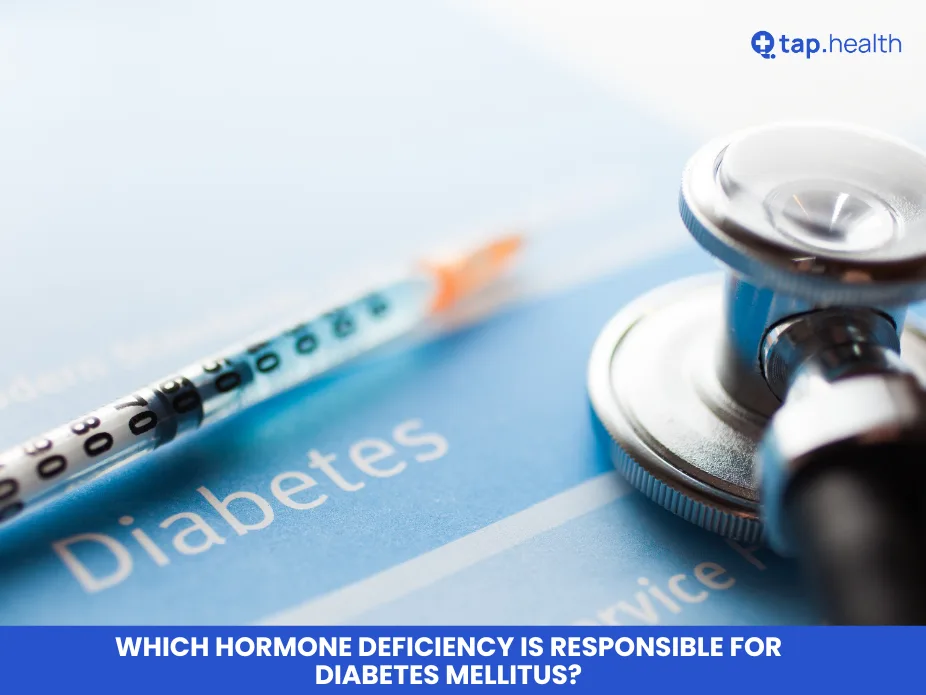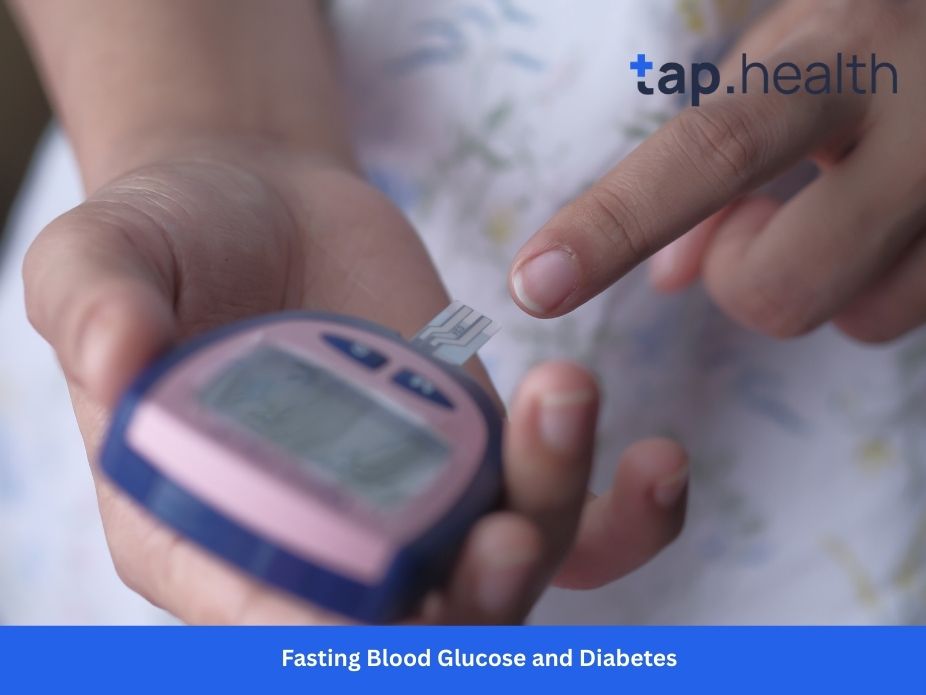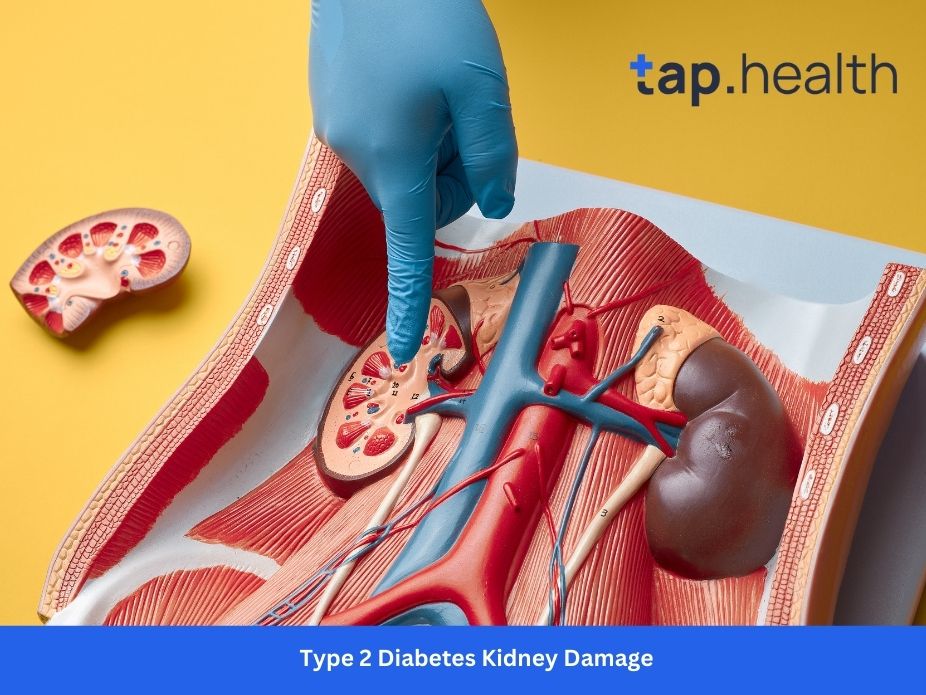Diabetes mellitus is a condition that affects millions of people worldwide. It’s a chronic disease that impacts how your body processes blood sugar (glucose). One of the most common questions people have about diabetes is what causes it. The answer often lies in hormone deficiencies, particularly insulin. But the story doesn’t end there. Hormones like insulin, glucagon, and others all play a role in regulating blood sugar levels.
In this post, we’ll explain the key hormones involved in diabetes, the specific hormone deficiencies that contribute to the condition, and how they impact the body’s ability to regulate blood sugar. By the end, you’ll have a clearer understanding of what causes diabetes and why hormones are so important in its development and management.
Understanding Diabetes Mellitus
Before we dive into hormone deficiencies, let’s first understand what diabetes mellitus is and how it affects the body.
Diabetes is a metabolic disorder that causes high blood sugar (hyperglycemia). This happens when your body either can’t produce enough insulin (the hormone that helps cells absorb glucose) or it can’t use the insulin it does produce effectively. This leads to an increase in blood sugar levels, which over time can cause serious complications like heart disease, kidney failure, and nerve damage.
Read this – Can Diabetics Eat Dragon Fruit?
Types of Diabetes Mellitus
There are two main types of diabetes mellitus: Type 1 and Type 2.
- Type 1 Diabetes: This type occurs when the body’s immune system attacks the pancreas, the organ responsible for producing insulin. People with Type 1 diabetes have little to no insulin production, making it a clear case of hormone deficiency.
- Type 2 Diabetes: In Type 2 diabetes, the body either doesn’t produce enough insulin or becomes resistant to the insulin it does produce. While insulin production may still be present, it’s not effective enough to regulate blood sugar levels properly.
Which Hormones Are Involved in Diabetes?
When it comes to diabetes, the most important hormones to consider are insulin, glucagon, and other hormones that help regulate blood sugar levels. Here’s a breakdown of how these hormones work:
1. Insulin – The Primary Hormone in Diabetes
Insulin is the hormone that plays the most significant role in diabetes mellitus. Produced by the pancreas, insulin helps cells in the body absorb glucose from the bloodstream. Without insulin, glucose would build up in the blood, leading to high blood sugar levels.
In Type 1 diabetes, the body’s immune system attacks and destroys the insulin-producing cells in the pancreas, leaving the person with little or no insulin. This is a clear example of hormone deficiency causing diabetes.
In Type 2 diabetes, the pancreas still produces insulin, but the body becomes resistant to it. This means that even though insulin is present, it isn’t as effective at helping cells absorb glucose, which results in high blood sugar levels. This type is more about insulin resistance rather than a hormone deficiency.
2. Glucagon – A Hormone That Increases Blood Sugar
Glucagon is another hormone produced by the pancreas. It works in opposition to insulin: while insulin lowers blood sugar, glucagon raises blood sugar. Glucagon signals the liver to release stored glucose into the bloodstream when blood sugar levels are too low.
In people with diabetes, especially those with Type 1 diabetes, glucagon regulation can become disrupted. The body’s inability to produce enough insulin can cause blood sugar levels to stay elevated, while glucagon may continue to signal the liver to release more glucose, worsening the imbalance.
3. Cortisol – The Stress Hormone
Cortisol, often referred to as the stress hormone, plays a role in blood sugar regulation. When you’re under stress, cortisol is released, which increases glucose production in the liver. This can temporarily raise blood sugar levels. For people with diabetes, elevated cortisol levels may contribute to difficulties in managing blood sugar.
4. Growth Hormone – Impacting Glucose Regulation
The growth hormone (GH), which is produced by the pituitary gland, also influences blood sugar levels. Growth hormone can increase blood sugar by decreasing the effectiveness of insulin. This is especially significant for those with diabetes, as the hormone may worsen insulin resistance.
What Hormone Deficiency Causes Diabetes Mellitus?
The hormone deficiency most closely associated with diabetes mellitus, particularly Type 1 diabetes, is insulin. Here’s why:
Insulin Deficiency and Type 1 Diabetes
Type 1 diabetes is characterized by a complete or near-complete insulin deficiency. The immune system attacks the insulin-producing cells (beta cells) in the pancreas, leaving the body unable to produce insulin. As a result, the body cannot regulate blood sugar properly, leading to high blood glucose levels.
In this case, insulin is the critical hormone that is deficient, and its absence is what causes the symptoms of Type 1 diabetes.
Insulin Resistance and Type 2 Diabetes
In Type 2 diabetes, the problem is not a complete insulin deficiency but rather insulin resistance. The pancreas still produces insulin, but the body’s cells become less responsive to it. Over time, the pancreas may struggle to produce enough insulin to overcome this resistance. Although insulin production may still be normal or even high in the early stages, it’s not effective enough to regulate blood sugar, leading to elevated glucose levels.
Thus, while insulin resistance is the primary issue in Type 2 diabetes, the body still experiences a relative insulin deficiency over time as the pancreas becomes overwhelmed and unable to produce enough insulin.
Real-Life Scenarios: How Hormonal Deficiencies Impact Diabetes
Scenario 1: Emma’s Type 1 Diabetes Journey
Emma, a 14-year-old girl, was diagnosed with Type 1 diabetes at the age of 10. She has no insulin production due to her immune system attacking her pancreas. Her blood sugar levels are carefully managed with daily insulin injections. Without this hormone, Emma’s body cannot properly process glucose from her meals, and without insulin replacement, she would experience dangerously high blood sugar levels. Her doctors work closely with her to adjust her insulin doses based on her daily activity and meals.
Scenario 2: John’s Struggle with Type 2 Diabetes
John, a 50-year-old man, has been living with Type 2 diabetes for several years. Although his pancreas still produces insulin, his cells are resistant to it. Over time, his pancreas has to work harder to produce more insulin to keep his blood sugar in check. Eventually, his insulin production decreases, and John finds it more difficult to manage his blood sugar levels. With diet, exercise, and medication, John is able to manage his condition, but he must monitor his insulin levels closely to avoid complications.
Expert Contributions: What Do Health Experts Say?
According to Dr. Sarah Williams, a leading endocrinologist at the American Diabetes Association:
“Insulin is the most critical hormone in diabetes management. In Type 1 diabetes, insulin deficiency is absolute, meaning that the body cannot produce insulin at all. In Type 2 diabetes, the issue is insulin resistance, where the body’s cells are unable to respond to insulin effectively. Both conditions highlight the importance of insulin in regulating blood glucose levels. Understanding how insulin works and how its deficiency or resistance affects the body is crucial for proper diabetes management.”
Dr. Williams emphasizes the role of diet, exercise, and medication in managing both types of diabetes. She recommends lifestyle modifications to reduce insulin resistance and insulin therapy for those with Type 1 diabetes or those with advanced Type 2 diabetes.
For more expert guidance on diabetes, you can visit the American Diabetes Association.
Recommendations for Managing Diabetes Through Hormone Balance
For Type 1 Diabetes – Insulin Therapy
Type 1 diabetes occurs when the body doesn’t produce insulin. The most effective treatment is daily insulin therapy, delivered either through injections or an insulin pump. This helps keep blood sugar levels within a healthy range.
For Type 2 Diabetes – Boost Insulin Sensitivity
In Type 2 diabetes, the body still makes insulin but doesn’t use it effectively. Improving insulin sensitivity is key. This can be done by staying active, eating a balanced diet low in refined sugars, and maintaining a healthy weight. Medications such as metformin or GLP-1 agonists may also help.
Manage Stress and Cortisol Levels
High cortisol (the stress hormone) can raise blood sugar levels. Managing stress is essential for better control. Practices like meditation, yoga, and deep breathing exercises can lower cortisol and help prevent sugar spikes.
Monitor Blood Sugar Regularly
Whether you have Type 1 or Type 2 diabetes, regular blood sugar checks are vital. Continuous glucose monitors (CGMs) can give real-time readings, making it easier to adjust insulin or lifestyle habits promptly.
FAQ: Common Questions About Hormones and Diabetes
1. What hormone is responsible for diabetes?
The primary hormone responsible for diabetes is insulin. A deficiency of insulin or insulin resistance leads to diabetes.
2. What causes insulin resistance in Type 2 diabetes?
Insulin resistance in Type 2 diabetes occurs when the body’s cells don’t respond effectively to insulin. This can be caused by factors such as obesity, lack of physical activity, and poor diet.
3. Can cortisol affect diabetes?
Yes, elevated cortisol levels, often triggered by stress, can increase blood sugar levels and make it harder to manage diabetes.
4. Is there a cure for hormone deficiency in diabetes?
While there is no cure for Type 1 diabetes, insulin therapy can replace the hormone. For Type 2 diabetes, lifestyle changes, medications, and sometimes insulin therapy can help manage insulin resistance.
5. How does growth hormone affect diabetes?
Growth hormone can raise blood sugar levels by reducing the effectiveness of insulin. This can contribute to insulin resistance and make managing blood sugar levels more difficult.
Conclusion
Hormone deficiencies play a significant role in the development and progression of diabetes mellitus. Insulin deficiency is the primary cause of Type 1 diabetes, while insulin resistance contributes to Type 2 diabetes. Understanding how these hormones work and how they affect blood sugar levels is crucial for effective diabetes management. By working with healthcare providers and making necessary lifestyle adjustments, people with diabetes can manage their condition and lead healthy lives.
References:
- Mayo Clinic, Diabetes Overview



